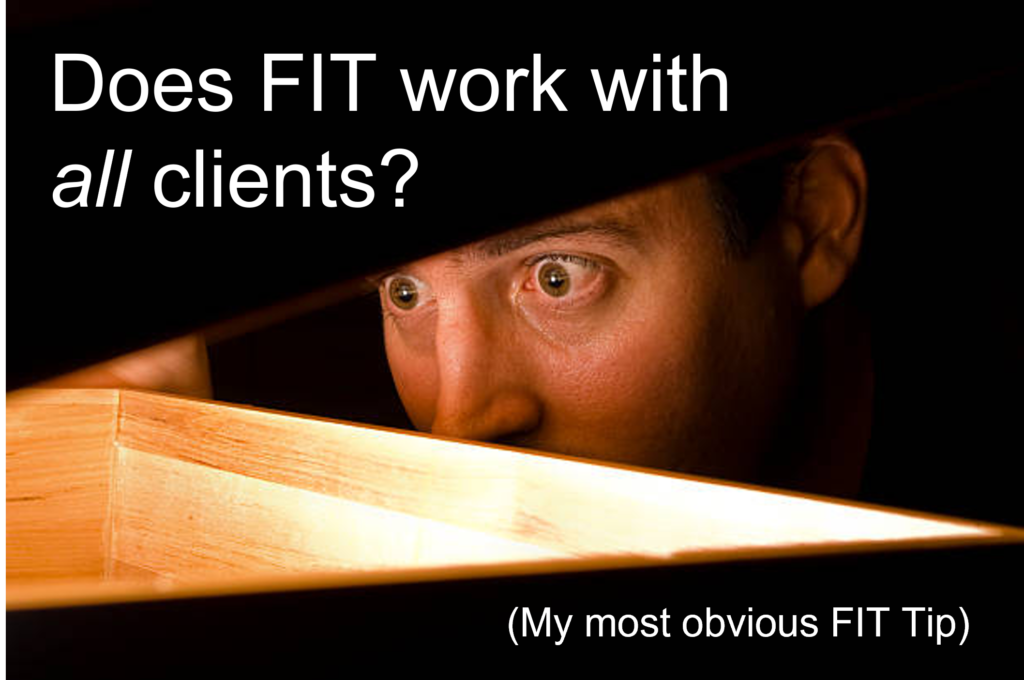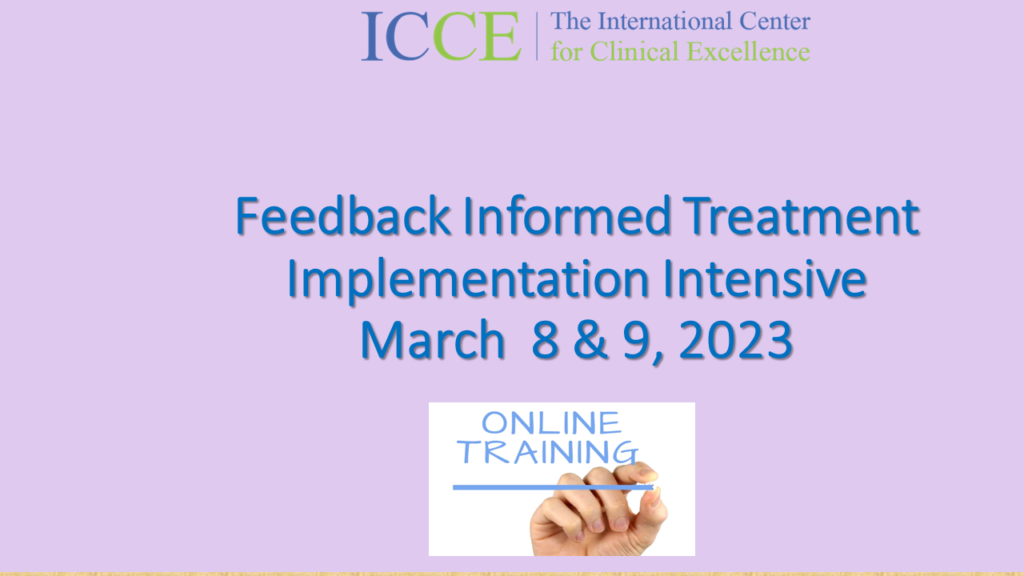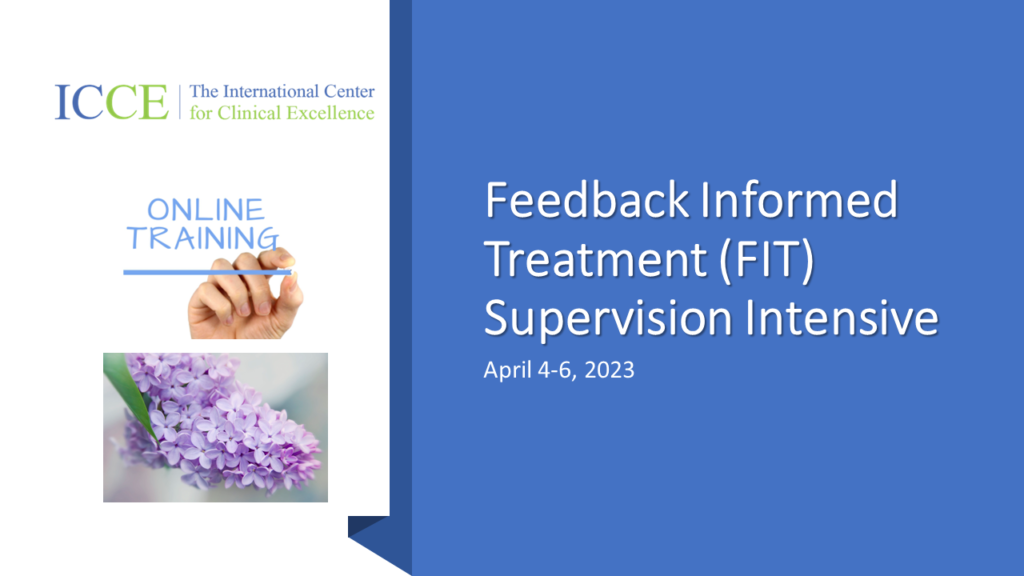
It’s a question that comes up at some point in most trainings on feedback-informed treatment (FIT):
“Can I use FIT with all my clients?”
Having encountered it many times, I now have a pretty good sense of the asker’s concerns. Given our training as mental health professionals, we think in terms of diagnosis, treatment approach and service delivery setting.
Thus, while the overall question is the same, the particulars vary:
“Does FIT work (with people in recovery for drug and alcohol problems, those with bipolar illness or schizophrenia, in crisis settings, group or family therapy, long term, inpatient or residential care)?
Occasionally, someone will report having read a study indicating FIT either did not work or made matters worse when used with certain types of clients (1) or in particular settings (2).
While I have posted detailed responses to specific studies published over the last couple of years (3), the near limitless number of ways questions of efficacy can be parsed ultimately renders such an approach clinically and pragmatically useless. Think of the panoply of potential parameters one would need to test. The latest edition of the Diagnostic and Statistical Manual of Mental Disorders alone contains 297 diagnoses. Meanwhile, more than a decade ago, Scientific American identified 500 different types of psychotherapy. If history is a reliable guide, the number of approaches has most certainly increased by now. Add to that an ever evolving number of settings in which treatment takes place — most recently online — and the timeline for answering even the most basic questions quickly stretches to infinity.
So, returning to the question, “how best to decide whether to use FIT with ‘this or that’ client, treatment approach, or service setting?”
That’s the subject of my latest FIT TIP: Does FIT work with all Clients?
As promised, every 10 days or so, I’ve released a brief video providing practical guidance for optimzing your use of feedback in treatment. To date, these have addressed:
How to solicit clinically useful feedback
How to use client feedback to improve effectiveness
Identifying the best electronic FIT outcome system for you
What to do when your client is not making progress
Should you start FIT with established clients
OK, that’s it for now! Until next time,
Scott
Scott D. Miller, Ph.D.
Director, International Center for Clinical Excellence
P.S.: Registration for the next FIT Implementation Online intensive is open. If you or your agency are thinking about or beginning to implement FIT, this is the event to attend. In this highly interactive training, you will learn evidence-based steps for ensuring success.




